رد: القوات الجوية تستعد للمشاركة في "العلم الأخضر" ببريطانيا










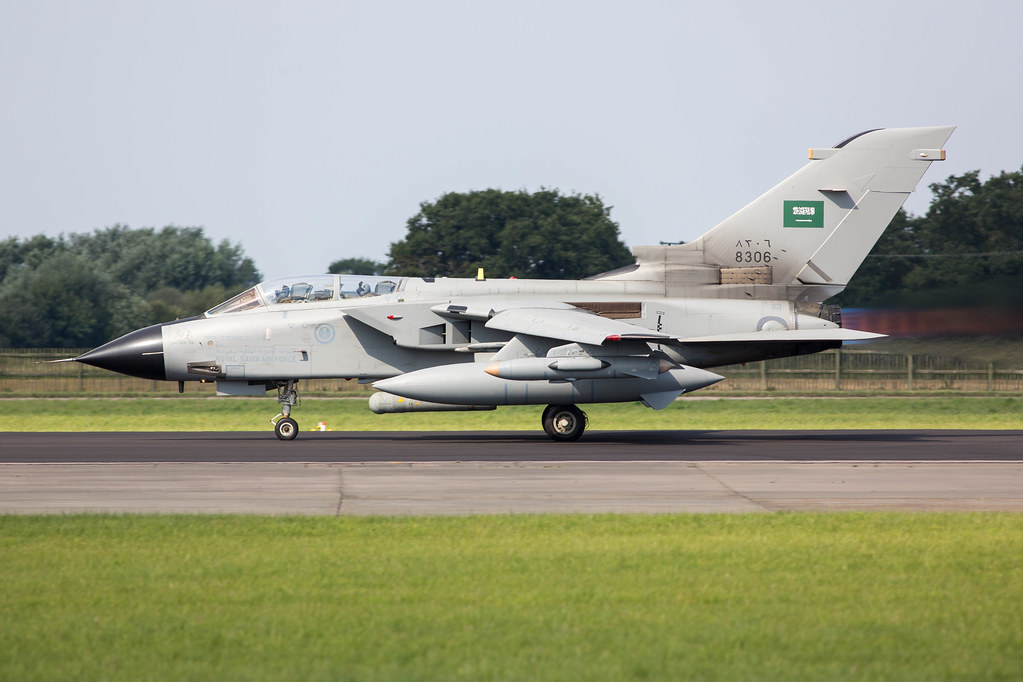

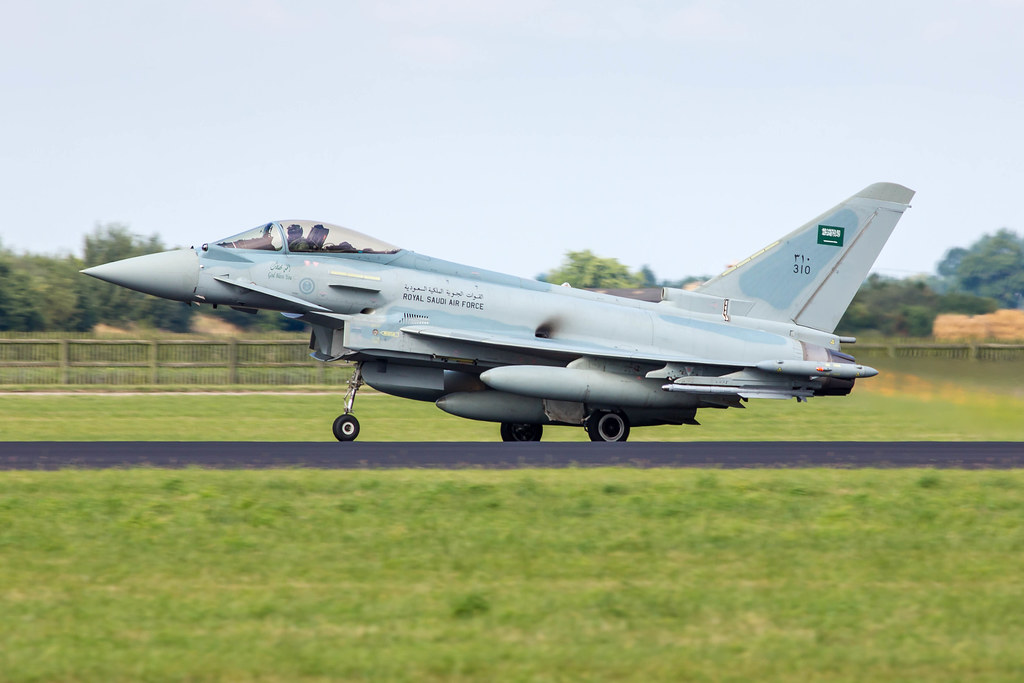
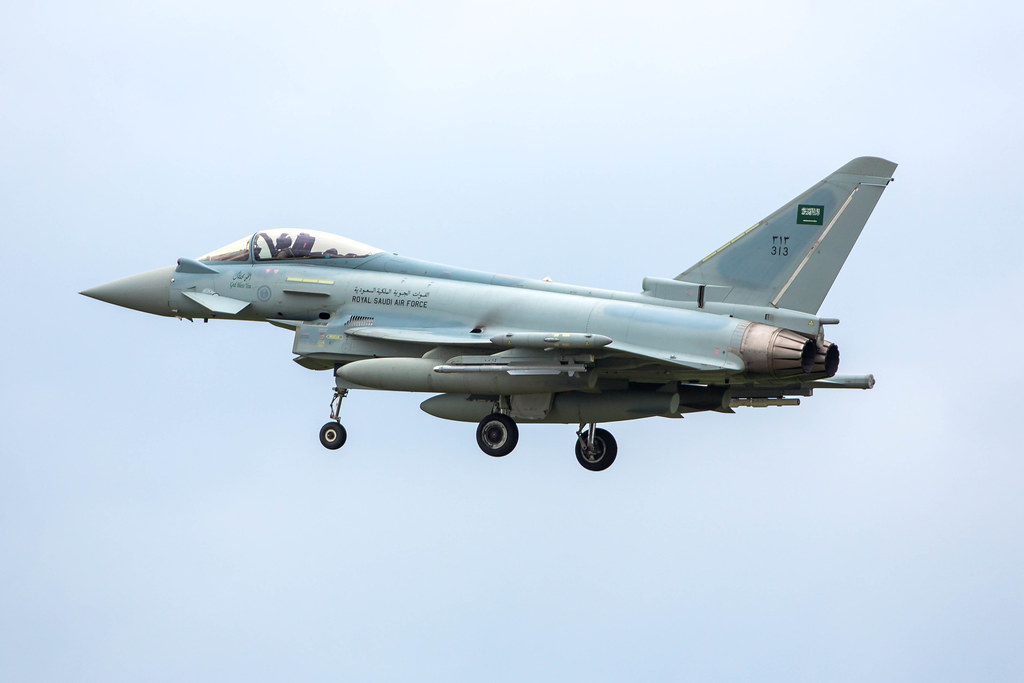
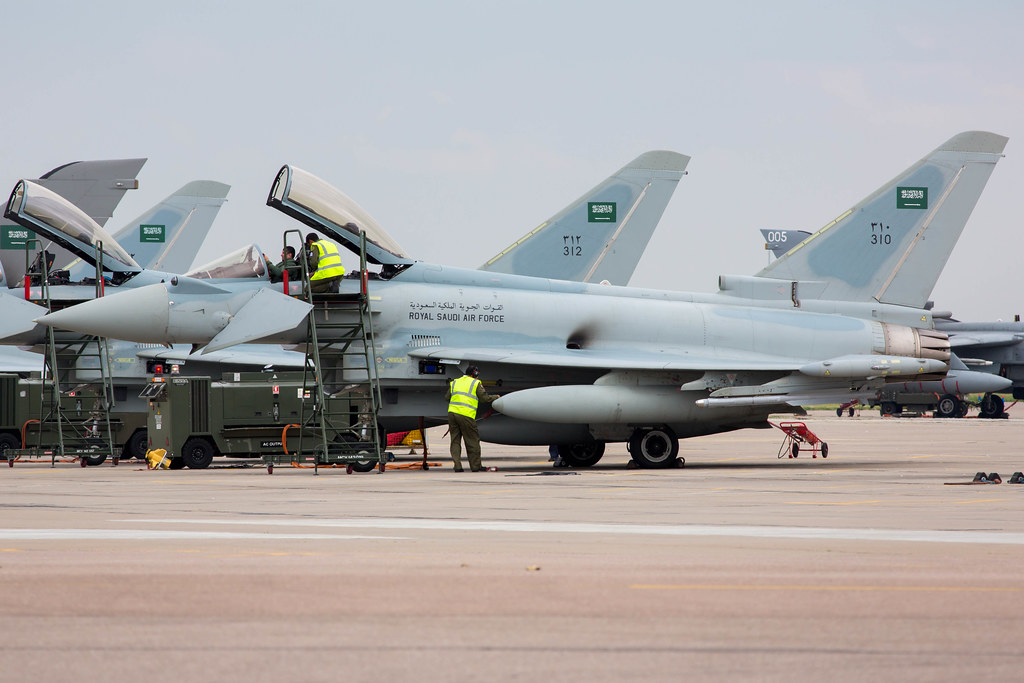

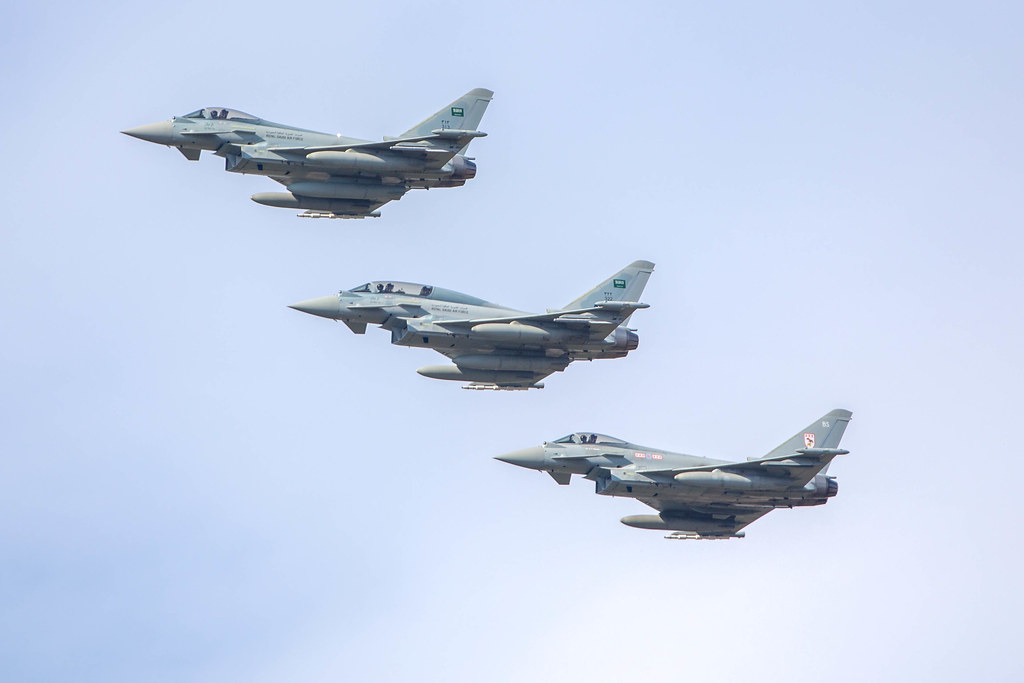
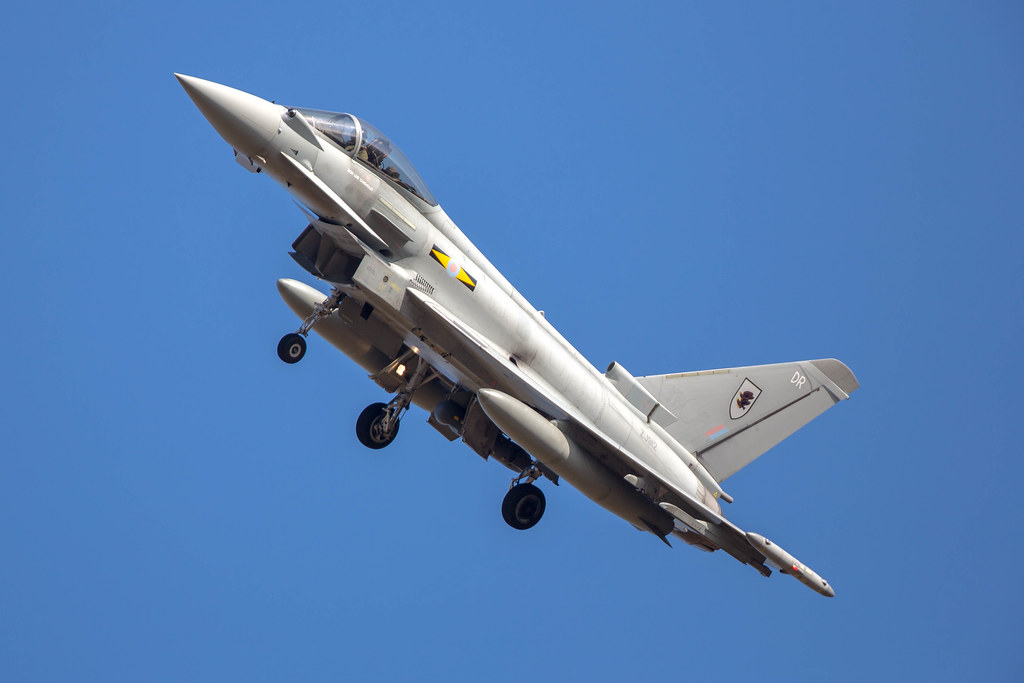
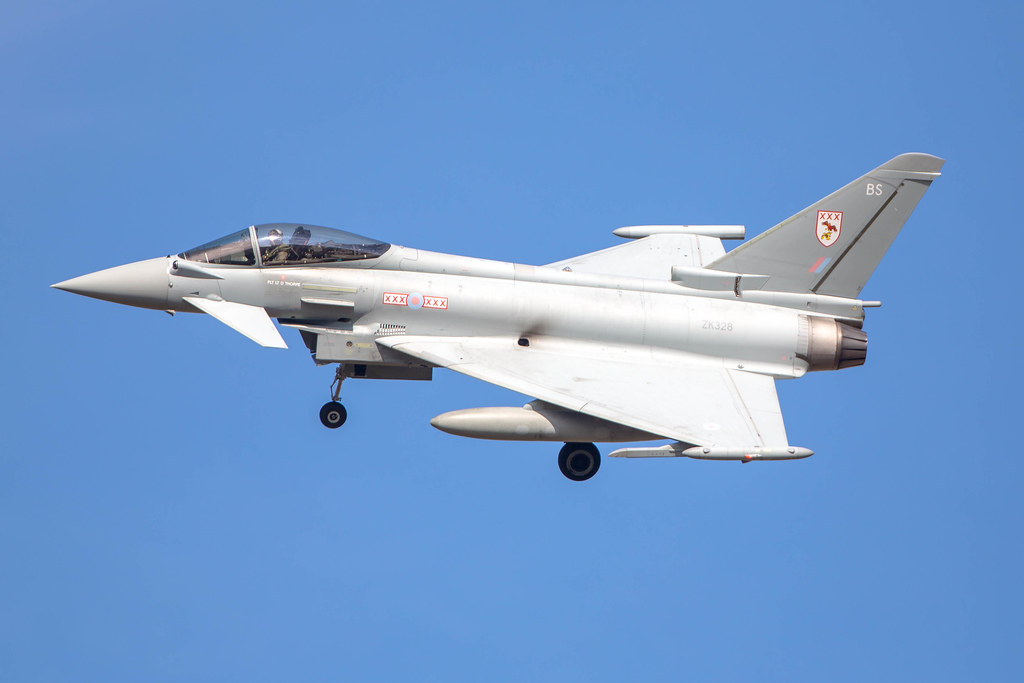























| Type | Serial | Unit |
| Eurofighter EF2000 Typhoon FGR5 | 310(Pre Delivery ZK078) | 3 Squadron |
| Eurofighter EF2000 Typhoon FGR5 | 312(Pre Delivery ZK080) | 3 Squadron |
| Eurofighter EF2000 Typhoon FGR5 | 313(Pre Delivery ZK071) | 3 Squadron |
| Eurofighter EF2000 Typhoon T54 | 322(Pre Delivery ZK090) | 3 Squadron |
| Panavia Tornado IDS | 7507(Pre Delivery ZH924) | 75 Squadron |
| Panavia Tornado IDS | 7512(Pre Delivery ZH929) | 75 Squadron |
| Panavia Tornado IDS | 8306(Pre Delivery ZH939) | 83 Squadron |
| Panavia Tornado IDS | 8312(Pre Delivery ZH945) | 83 Squadron |
| Lockeed C130H Hercules | 475 | 4 Squadron |
| Lockeed C130H Hercules | 482 | 4 Squadron |
| Lockeed C130H Hercules | 483 | 4 Squadron |
| Lockeed C130H Hercules | 486 | 4 Squadron |
| Lockeed C130H Hercules | 1622 | 16 Squadron |
| Lockeed C130H Hercules | 1623 | 16 Squadron |
| Lockeed C130H Hercules | 1624 | 16 Squadron |
| Lockeed C130H Hercules | 1625 | 16 Squadron |
| Lockeed C130H Hercules | 1630 | 16 Squadron |
| Airbus A330 MRTT | 2401 | 24 Squadron |
| Airbus A330 MRTT | 2402 | 24 Squadron |
| Airbus A330 MRTT | 2403 | 24 Squadron |
| Cessna Citation 550 IIB | HZ136 | 1 Squadron/Royal Flight |
| Type | Serial | Unit |
| Panavia Tornado GR4 | ZA371/005 | 2 (AC) Squadron |
| Panavia Tornado GR4 | ZA472/031 | 31 Squadron |
| Panavia Tornado GR4 | ZA473/032 | Unmarked/31 Squadron |
| Panavia Tornado GR4 | ZA604/068 | Unmarked/9 Squadron |
| Panavia Tornado GR4 | ZD810 102 | 2 (AC) Squadron |
| Panavia Tornado GR4 | ZD842/105 | 15 (R) Sqaudron |
| Panavia Tornado GR4 | ZG705/118 | Unmarked/9 Squadron |
| Eurofighter EF2000 Typhoon T3 | ZJ815/BN | 29 (R) Squadron |
| Eurofighter EF2000 Typhoon FGR4 | ZJ912/DR | 11 (F) Squadron |
| Eurofighter EF2000 Typhoon FGR4 | ZJ931/DA | 11 (F) Squadron |
| Eurofighter EF2000 Typhoon FGR4 | ZK305/DE | 11 (F) Squadron |
| Eurofighter EF2000 Typhoon FGR4 | ZK306/BT | 29 (R) Squadron |
| Eurofighter EF2000 Typhoon FGR4 | ZK309/QO-P | 3 (F) Squadron |
| Eurofighter EF2000 Typhoon FGR4 | ZK323/DN | 11 (F) Squadron |
| Eurofighter EF2000 Typhoon FGR4 | ZK328/BS | 29 (R) Squadron |
| Eurofighter EF2000 Typhoon T3 | ZK379/BB | 29 (R) Squadron |
| Eurofighter EF2000 Typhoon T3 | ZK380/BG | 29 (R)Squadron |
الأعضاء المتواجدون الآن 11. الأعضاء 0 والزوار 11.
أكبر تواجد بالمنتدى كان 182,482, 05-21-2024 الساعة 06:44.
تعليق